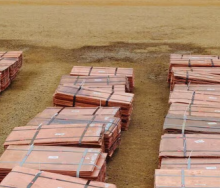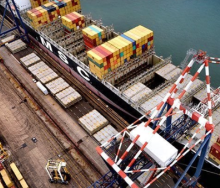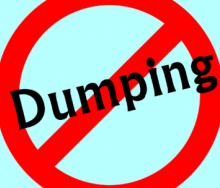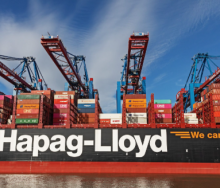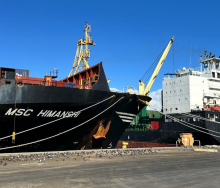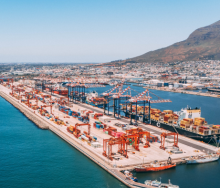As trade relations between China and the US deteriorate amid ongoing high-stakes tariff chess, it’s necessary to keep a cool head and a close watch on what’s really happening, economist Azza Al Habsi has said.
The representative of Oman International Development and Investment Company, Ominvest, remarked that if there was any doubt that President Donald Trump was not on some sort of a tariff crusade, the so-called ‘Liberation Day’ tariffs, meant to set the US economy free from trade imbalances, should have put paid to such uncertainties by now.
“He clearly wants tariffs to stay,” she wrote on social media. “It’s part of his long-term agenda.”
But Trump, frequently depicted as a bull in the China shop, is also well aware of the ramifications his trade belligerence has had on the US bond market.
“For now, Trump is getting to know the importance of the bond market. And as that happens, his tariff pushes are expected to follow the yield curve: yields up, he backs off and gives exemptions; yields down, he goes maximum trade pressure again.”
If that didn’t quite clear things up, said Al Habsi, it was worth noting that “it’s becoming more obvious that he (Trump) wants to implement them (tariffs) in a way that doesn’t destabilise financial markets, especially the US Treasury market, or trigger a 1930s-style Great Depression”.
But where does it leave China?
What has been clear from the start is that the US’s former biggest trading partner “is the real target”.
Al Habsi added that what was also clear was that China “had a playbook ready to fight back if targeted”.
“The expectation was that other countries would shift toward closer trade ties with China, especially given that tariffs on surrounding Asian countries were among the highest.”
However, the potential for this scenario to play out in a certain way, much like Eastern market dynamics did when Trump targeted China with tariffs during his first term (2017-2021), was effectively negated by the three-month reprieve on various economies.
Any potential for pro-Chinese market alliances to be formed after the “reciprocal tariffs” were announced in Washington on April 9, were made much harder by Trump’s 90-day exemption.
Complicating China’s ability to rally trade partners around, “is likely seen as the worst-case scenario”, Al Habsi said, as it meant “isolation at a time of economic fragility”.
“China is now expected to stimulate the economy even more – good for all of us.
“To put things into perspective, China now accounts for about 30% of global manufacturing output, more than the US, Japan, Germany and South Korea combined.”
Al Habsi also said that it was worth considering that, although the terms ‘near-shoring’ or ‘friend-shoring’ were probably not phrases that were part of Trump’s lexicon. He knowns the concept – sparking economic activity through domestic supply line dynamics.
Trump’s message was clear, she said: “Relocation to the US is the end goal.”
It’s been well reported, though, that near-shoring could come at significant expense to the US economy and its leading brands.
For decades, leading manufacturers, including technology giants like Apple, have favoured offshoring manufacturing to Asia due to significantly lower labour costs and established supply chain networks.
The cost advantage of manufacturing abroad has been a primary driver, making it less attractive for companies to re-shore production to the US, where labour and regulatory costs are higher.
Even with the rise of automation and government incentives, the economics of large-scale manufacturing often remain more favourable outside the US.
The advantages of near-shoring are well documented: reduced shipping times and costs, improved oversight and quality control, and enhanced supply chain resilience.
But, despite the advantages, nearshoring does not equate to a full return of manufacturing jobs to the US.
While near-shoring may create some ancillary benefits for the US economy – such as increased demand for logistics, transportation, and certain high-value components – it does not deliver the same level of domestic job creation as true re-shoring.
In fact, comprehensive data indicates that decisions by US companies to offshore production still outnumber those opting to re-shore by a significant margin.
The US manufacturing sector has seen only modest employment gains in comparison to the scale of jobs lost to offshoring over previous decades. The complexity of the US tax code, higher wages, and regulatory burdens, continue to deter companies from fully relocating production stateside.
Instead, nearshoring often results in jobs and investment flowing to neighbouring countries, particularly Mexico, rather than directly benefiting US workers.
Industry experts are on record for saying that, while near-shoring enhances supply-chain resilience and reduces certain risks, the fundamental cost structure remains a key consideration for multinational brands.
For companies like Apple, the price differential between manufacturing in the US and abroad remains substantial, making large-scale re-shoring unlikely in the near term.
Apple's market capitalisation plummeted by approximately $700 billion in the days immediately following the ‘Liberation Day’ tariff announcements.
This sharp decline occurred over a three- to four-day period, with the stock dropping 19% in three days and 23% over four trading days, erasing hundreds of billions in value due to fears about Apple's heavy reliance on Chinese manufacturing.
The losses briefly reduced Apple's market cap to around $2.6 trillion. – Compiled using various news sources.


